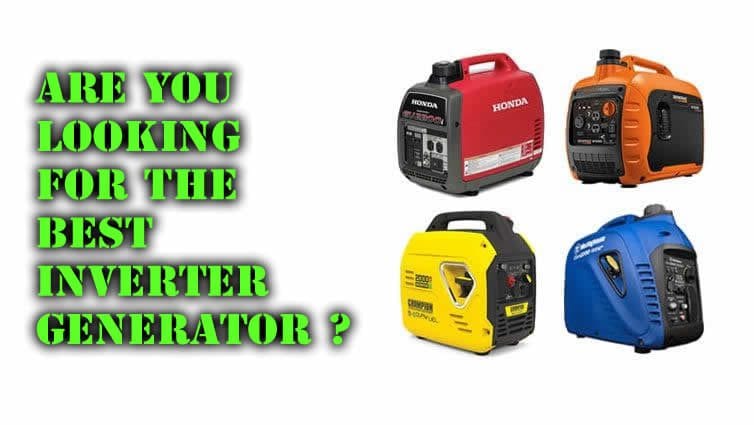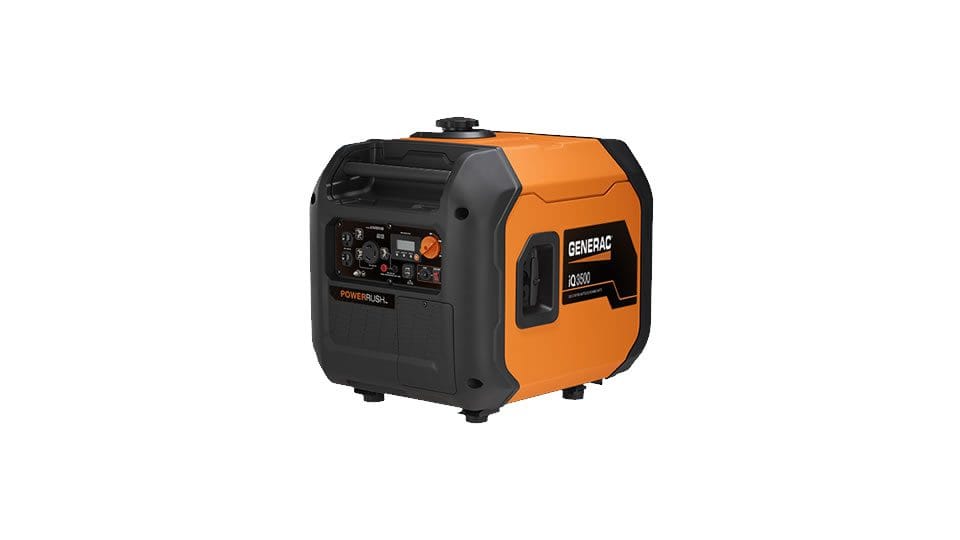Best Inverter Generator Overview
Best inverter generators offer a powerful solution for anyone needing reliable and quiet power, whether at home, on the job, or during outdoor adventures. These generators are prized for their ability to deliver clean, stable energy without the noisy, erratic performance of traditional models. Whether you’re camping, tailgating, or preparing for an emergency power outage, choosing the best inverter generator ensures you have the right power when you need it most. In this article, we’ll dive into what makes these generators stand out and help you find the perfect one for your needs.
Inverter generators are the go-to solution for anyone seeking a reliable and quiet power source. The **best inverter generators** stand out for their ability to provide clean and stable energy while maintaining compact and efficient designs. Unlike traditional generators, these units can power sensitive electronics, such as laptops and phones, without the risk of damaging them. In this overview, we’ll explore top models, their standout features, and why they’re worth considering for all your portable power needs.
How to Choose the Best Inverter Generator for Your Home
When it comes to selecting the best inverter generator for your home, there are several factors to keep in mind. Not all generators are created equal, and understanding your specific power needs will help you make the best choice. With so many options on the market, it can be overwhelming to narrow down which one will work best for your household. But don’t worry! We’re here to guide you through the process and make the selection a whole lot easier.
1. Determine Your Power Requirements
The first step in choosing the best inverter generator for your home is to figure out how much power you need. Inverter generators are available in various wattage capacities, from small, portable units that can power a few devices to larger models capable of running multiple appliances. Take a look at the appliances and devices you want to power during an outage. Are you just powering essentials like lights and a fridge? Or do you need to run a central air conditioning unit or a home office?
List all the items you might need to power and check their wattage requirements. Add them up to get a clear picture of the total wattage needed. This will help you avoid buying an underpowered generator that can’t handle your load, or overpaying for a unit that offers more power than you need.
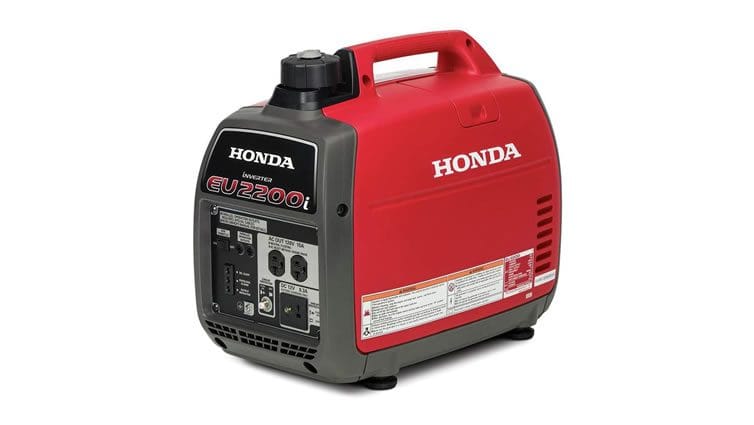
2. Consider Run Time and Fuel Type
Another important factor when choosing the best inverter generator is how long it can run on a single tank of fuel. If you’re preparing for an extended power outage, a longer run time will be crucial. Look for models that can run for 6 to 12 hours at half-load, as this will ensure you have enough power throughout the day or night.
Additionally, think about fuel type. Most inverter generators run on gasoline, but some models can run on propane or dual fuel, which adds convenience and flexibility. If you have a backup propane tank at home, opting for a dual-fuel inverter generator can be a smart move, especially if you’re concerned about running out of gas during an emergency.
3. Noise Level Matters
One of the standout features of an inverter generator is how quietly it operates compared to traditional generators. But not all models are equally quiet. If noise is a concern for you, especially if you’re using the generator in a residential area, look for models with a low decibel (dB) rating. Inverter generators typically range from 50 to 60 decibels, which is about as loud as a normal conversation or a dishwasher. This makes them ideal for home use, as you won’t disturb your neighbors or create unnecessary noise inside your house.
If you plan to use the generator while camping or during late-night hours, noise reduction should definitely be a key factor in your decision. Look for “quiet” or “ultra-quiet” models that are designed to keep noise to a minimum.
4. Portability and Storage
Even though you’re choosing an inverter generator for home use, it’s still important to think about portability. You may need to move it to different locations or store it when it’s not in use. Many modern inverter generators are compact, lightweight, and easy to transport, making them perfect for both home use and travel.
When shopping around for the best inverter generator, consider the weight of the unit and whether it has built-in handles or wheels for easier movement. A generator that’s too heavy or cumbersome to move around might not be as practical for your needs. Furthermore, ensure you have enough space to store the generator when it’s not in use, as you’ll want to keep it in a safe, dry location.
5. Features and Warranty
Modern inverter generators come with a variety of useful features. Some include electric start options for easy operation, while others offer multiple outlets to power various devices at once. There are also units that come with mobile app capabilities, allowing you to monitor the generator’s performance remotely. Think about what features will add the most value for your lifestyle.
Another critical aspect to consider is the warranty. The best inverter generators typically come with a warranty of at least 2-3 years, ensuring you’re covered if anything goes wrong. Before purchasing, check the warranty details and customer service reputation of the manufacturer to ensure peace of mind. If possible, choose a generator from a well-known brand with a solid track record of reliability and customer satisfaction.
Choosing the best inverter generator for your home doesn’t have to be stressful. By carefully considering your power needs, fuel options, noise level preferences, portability, and additional features, you can find the perfect generator for your situation. Remember, the goal is to have reliable power when you need it most, without worrying about noise, space, or running out of fuel. With these tips in mind, you’ll be well on your way to making an informed decision and securing peace of mind for you and your family during any power outage.
Features to Look for in a High-Quality Inverter Generator
When shopping for the best inverter generator, it’s important to look for specific features that ensure you’re getting a reliable, efficient, and user-friendly product. Whether you’re using the generator for home backup, outdoor activities, or on the job site, the right features can make all the difference. Let’s dive into the must-have features that will help you choose the perfect inverter generator for your needs.
Power Output and Wattage
The power output is one of the most important aspects to consider when selecting the best inverter generator. You need a generator that can handle the devices and appliances you plan to power. Generally, inverter generators come with two types of wattage ratings: starting (surge) wattage and running wattage. Starting wattage refers to the power required to start an appliance, while running wattage is what’s needed to keep it operating.
To ensure your generator can handle your needs, make a list of the items you plan to power. Add up their wattage requirements and choose a generator with a higher wattage capacity than your total. This ensures you have some breathing room and won’t risk overloading the generator.
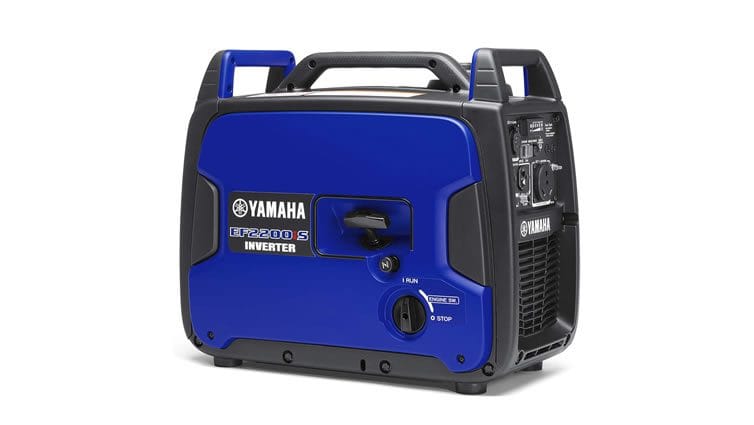
Quiet Operation
One of the standout features of an inverter generator is its quiet operation compared to traditional generators. Whether you’re using it at home during a power outage or camping in a quiet location, noise can be a major factor. The best inverter generators are known for their quiet performance, usually producing noise levels between 50 to 60 decibels, which is roughly the sound level of a normal conversation.
If you value a peaceful environment, make sure to check the decibel rating of the generator before purchasing. Many models come with noise reduction technology or mufflers that make them ideal for residential neighborhoods, campsites, and other noise-sensitive areas.
Fuel Efficiency
Fuel efficiency is another key feature that distinguishes a high-quality inverter generator from lower-end models. The more fuel-efficient a generator is, the longer it will run on a single tank, which is especially important in an emergency situation. Look for generators that are designed to use fuel efficiently, allowing you to extend run time and reduce fuel costs.
Inverter generators are generally more fuel-efficient than traditional generators because they adjust their engine speed according to the load, running at lower speeds when demand is light. This not only saves fuel but also reduces wear and tear on the engine, extending its lifespan.
Portability and Design
Portability is another essential factor when choosing the best inverter generator. If you plan to take your generator camping, tailgating, or use it in other outdoor settings, having a lightweight and compact design is crucial. Look for generators that are easy to move, especially those that come with built-in handles or wheels for added convenience.
Inverter generators tend to be smaller and more lightweight than traditional generators, which makes them a great option for portable power. Some models even feature foldable handles or ergonomic designs that make them easy to store in a car or shed when not in use.
Durability and Build Quality
When you invest in an inverter generator, you want to ensure it’s built to last. High-quality generators are constructed with durable materials, such as heavy-duty metal frames, that can withstand the elements and rough handling. If you’re using the generator in outdoor environments, it’s especially important to have a model that can handle rain, dust, and other harsh conditions.
Check the generator’s build quality and see if it’s designed to be corrosion-resistant or weatherproof. Additionally, consider models with protective covers or robust housing that can safeguard the internal components from damage.
Multiple Outlets and Versatility
Another important feature to consider is the number and type of outlets available on the best inverter generator. Having multiple outlets ensures you can power various devices at the same time, from phones and laptops to refrigerators and power tools. Some generators come with standard AC outlets, while others include DC outlets for charging devices like car batteries.
For maximum versatility, choose a model with both 120V and 240V outlets if you need to power larger appliances or equipment. Some models even offer USB ports for easy charging of smaller electronics, so look for a generator that can meet all your power needs.
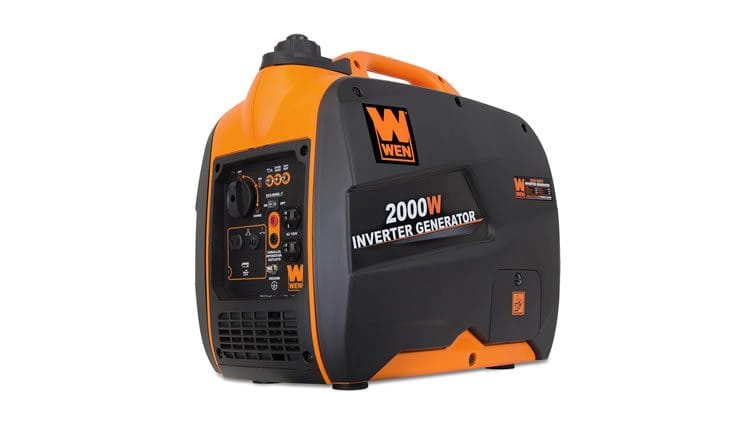
7. Safety Features
Safety should never be overlooked when purchasing an inverter generator. High-quality models are equipped with essential safety features that protect both the generator and your devices. Common safety features include overload protection, low-oil shutoff, and carbon monoxide (CO) detectors.
Overload protection prevents the generator from becoming damaged if it’s asked to supply more power than it’s rated for, while low-oil shutoff ensures the engine doesn’t run dry. Carbon monoxide detectors automatically shut down the generator if dangerous levels of CO are detected, keeping you safe in enclosed spaces.
8. Ease of Use and Maintenance
A good inverter generator should be easy to use and maintain. Look for models that feature intuitive control panels with clear labels and easy-to-use switches. Some generators even come with digital displays that show important information like remaining run time, fuel level, and power output.
In addition to ease of use, consider the maintenance requirements of the generator. High-quality models usually come with oil change indicators, easy-to-access air filters, and a straightforward maintenance schedule. This makes it easier to keep your generator in top working condition for years to come.
Choosing the best inverter generator means looking at a variety of features that will match your needs. From power output and fuel efficiency to portability and safety features, the right generator can provide you with reliable power whenever you need it most. By considering these key features, you’ll be better equipped to make an informed decision and choose the perfect generator to suit your lifestyle.
Best Inverter Generators for Camping and Outdoor Activities
When you’re heading out into the wild for a camping trip or outdoor adventure, having a reliable source of power can make all the difference. Whether you need to power a portable fridge, charge your devices, or simply enjoy a few comforts of home, choosing the best inverter generator for your camping needs is essential. But with so many options on the market, how do you know which one is right for you? Let’s dive into the features and top picks that can ensure your camping experience stays powered up and hassle-free.
Compact and Lightweight Design
When choosing the best inverter generator for camping, one of the most important factors to consider is portability. Camping trips often require you to travel light, and carrying heavy equipment can quickly become a burden. Thankfully, inverter generators are known for their compact size and lightweight design, making them an excellent choice for outdoor activities.
Look for a generator that weighs around 40 to 50 pounds, as this is the sweet spot for balancing power output with portability. Some models even come with built-in handles or wheels for easy transport, so you don’t have to struggle with carrying it to your campsite. These lightweight units ensure that you can enjoy the convenience of electricity without the headache of lugging around a bulky machine.
Quiet Operation for Peaceful Camping
One of the main benefits of using an inverter generator while camping is its quiet operation. Traditional generators can be noisy, disrupting the peaceful atmosphere of nature, but best inverter generators are designed to run at much quieter levels. The noise produced by inverter generators is typically much lower, often in the 50 to 60-decibel range, which is comparable to a normal conversation.
This quieter operation means you can enjoy your camping trip without the constant hum of a generator in the background. Whether you’re relaxing around the campfire or enjoying the serenity of nature, you won’t have to worry about disturbing the peace. Plus, quieter generators are a better option if you’re camping in campgrounds or national parks that have noise regulations.
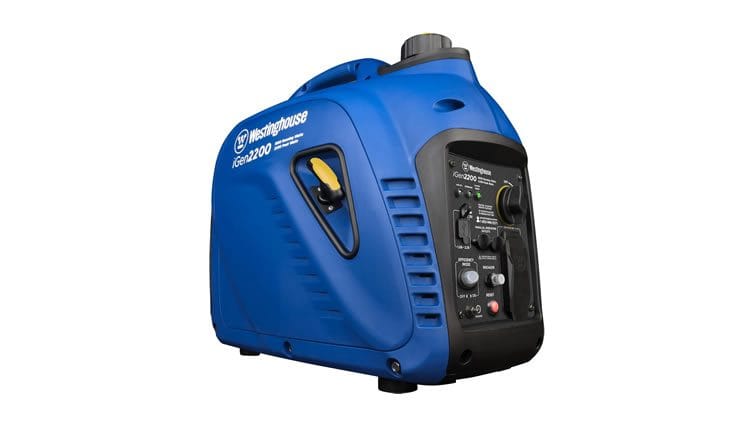
Fuel Efficiency for Extended Runs
When you’re out in the wilderness, you don’t always have easy access to a gas station. That’s why fuel efficiency is a crucial factor when choosing the best inverter generator for your outdoor adventures. Inverter generators are typically more fuel-efficient than traditional generators, allowing you to get more runtime out of a single tank of gas.
Many inverter generators are equipped with eco-mode or load-sensing technology that adjusts the engine speed based on the demand for power. This not only saves fuel but also reduces wear and tear on the engine, extending the life of your generator. You can spend more time enjoying the outdoors and less time worrying about refueling.
Sufficient Power for Essential Camping Gear
One of the main reasons you might consider bringing a generator on your camping trip is to power your essential camping gear. From small appliances like portable refrigerators to charging your devices, having a reliable power source is key. When selecting the best inverter generator, make sure the wattage is sufficient to meet your power needs.
For most campers, a generator with 1,500 to 2,000 watts of running power is usually enough to power essential items like a coffee maker, phone charger, or small lights. If you plan to use larger appliances, such as an air conditioner or a microwave, you might need a generator with higher wattage. Be sure to check the starting and running wattages of the appliances you’ll need to power to ensure the generator can handle the load.
Durability to Withstand the Elements
Camping means exposure to all kinds of weather conditions, so your best inverter generator must be built to handle the elements. Look for models that are weather-resistant and built with durable materials to withstand the outdoors. Many high-quality inverter generators are designed with rugged enclosures that protect the internal components from dust, rain, and other environmental factors.
Some generators are even equipped with built-in protective features like overload protection and low-oil shutoff, which ensure the generator keeps running smoothly no matter the conditions. If you’re camping in wet or humid areas, it’s essential to choose a generator with proper ventilation and weatherproofing to prevent damage from moisture.
Multiple Outlets for Versatility
A great feature to look for in the best inverter generator for camping is a variety of outlets that allow you to power multiple devices at once. Whether you’re charging your phone, running a fan, or powering a small electric stove, having multiple outlets is a real convenience. Many inverter generators come with several AC outlets, DC outlets for charging devices, and even USB ports for easy charging of smaller electronics.
Versatility is key when you’re outdoors, as you never know what equipment you may need to use. Having a generator that can accommodate different devices and appliances makes it much easier to power everything you need without the hassle of switching plugs or running extension cords.
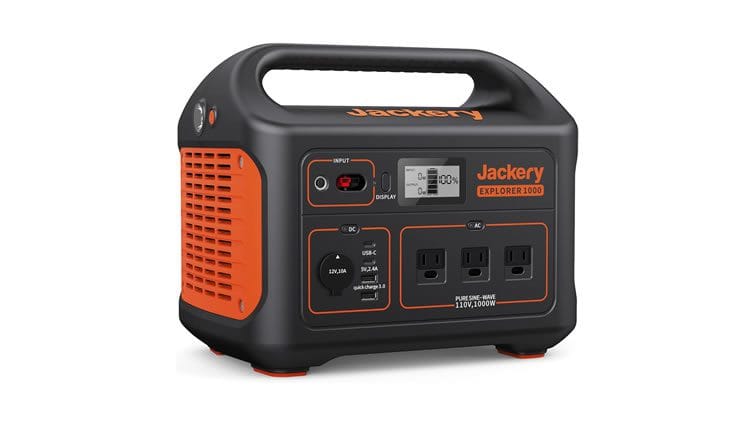
Affordable and Reliable Brands
When choosing the best inverter generator for your camping trip, it’s important to choose a reliable brand that offers great value for your money. Some of the most trusted inverter generator brands include Honda, Yamaha, and Champion, all of which are known for producing durable, efficient, and long-lasting models. These brands offer a range of sizes and features to suit different camping needs and budgets.
While quality comes at a price, it’s worth investing in a high-quality generator that will provide reliable power during your trip. A cheap, unreliable generator can leave you stranded without power when you need it most, so make sure to choose a trusted brand that’s known for quality and customer support.
When it comes to choosing the best inverter generator for camping and outdoor activities, the right features can make all the difference. Portability, quiet operation, fuel efficiency, and sufficient power are all essential factors to consider. Whether you’re camping in the woods or tailgating with friends, an inverter generator will keep you powered up and ready for anything. By focusing on these key features, you’ll be well-equipped to enjoy your time in nature with the convenience of portable power.
Tips for Maximizing the Efficiency of Your Inverter Generator
When you’re relying on a best inverter generator to power your home or outdoor activities, efficiency is key. After all, you want to make the most of every drop of fuel, extend the lifespan of your generator, and avoid unnecessary noise or wear. Fortunately, there are several easy-to-follow tips and best practices that can help you maximize the efficiency of your inverter generator. Let’s dive into these tips to keep your generator running smoothly while conserving energy and fuel.
Choose the Right Size for Your Power Needs
One of the most effective ways to maximize your best inverter generator’s efficiency is by selecting the right size for your power requirements. Generators are designed to provide a certain amount of power, and choosing a unit that’s either too big or too small for your needs can result in wasted energy and higher fuel consumption.
Before purchasing, take the time to calculate the total wattage required for the devices or appliances you plan to run. A generator that’s too small will have to work overtime, while an oversized generator will operate inefficiently at low loads. By matching the generator size to your needs, you ensure that it works at peak efficiency, reducing fuel usage and extending its lifespan.
Utilize Eco-Mode for Fuel Savings
Many of the best inverter generators come equipped with an eco-mode or energy-saving feature. This mode automatically adjusts the engine’s speed based on the power load, ensuring that the generator only uses as much fuel as necessary to meet the demand. When you’re not running heavy equipment, eco-mode reduces fuel consumption and helps your generator run quieter.
Using eco-mode is an easy way to cut down on fuel costs, especially during lighter load periods. It’s also beneficial for reducing wear and tear on the engine, helping your generator last longer. If your generator has this feature, be sure to take advantage of it whenever possible.
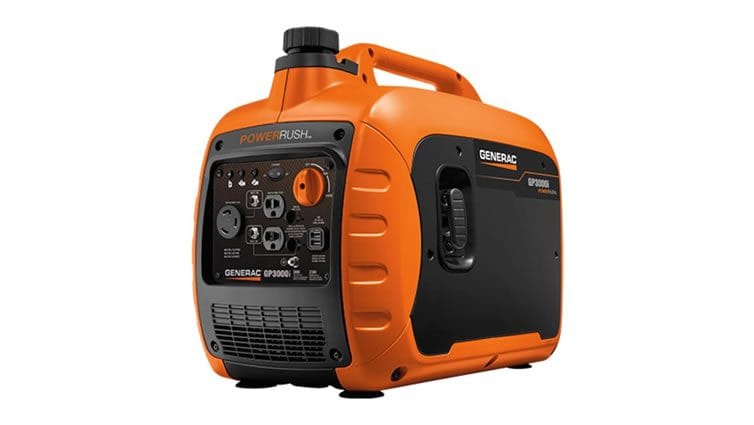
Regular Maintenance Keeps Things Running Smoothly
Regular maintenance is one of the best ways to ensure that your best inverter generator operates efficiently. By keeping your generator in good condition, you not only boost its performance but also prevent costly repairs in the future.
Simple maintenance tasks, such as changing the oil, cleaning the air filter, and checking the spark plugs, can significantly improve fuel efficiency. Also, keep an eye on the fuel lines and ensure there are no blockages or leaks. A well-maintained generator runs more smoothly, burns less fuel, and is less likely to break down during use. Remember, taking care of the small stuff now can save you time and money later.
Avoid Overloading Your Generator
It can be tempting to push your best inverter generator to its limits, especially if you’re powering multiple devices at once. However, overloading your generator can lead to poor performance, increased fuel consumption, and potential damage to the machine.
To maximize efficiency, avoid running too many appliances or devices that draw high wattage at the same time. If your generator has a wattage rating, make sure you don’t exceed that limit. You can use a wattage meter to help monitor the load and prevent overloading. By ensuring the generator is only asked to do as much as it can handle, you’ll be able to run it more efficiently and extend its lifespan.
Keep the Generator Clean and Well-Ventilated
A clean generator is a happy generator. Keeping the exterior of your best inverter generator free from dirt, dust, and debris ensures that it runs smoothly and efficiently. Dirt can clog the air vents, causing the generator to overheat or operate less efficiently. Clean the vents and exterior regularly, especially if you’re using it in dusty environments.
In addition to keeping the generator clean, make sure it’s positioned in a well-ventilated area. Proper airflow helps the generator maintain an optimal temperature, preventing overheating and improving fuel efficiency. Avoid placing your generator in a confined space or near objects that can obstruct the air intake or exhaust.
Use the Right Fuel for Optimal Efficiency
Not all fuels are created equal, and the type of fuel you use in your best inverter generator can have a direct impact on its performance and efficiency. Always use the recommended fuel type, whether it’s gasoline, propane, or a mixture of both. Some generators also offer dual-fuel options, giving you more flexibility and efficiency based on your location and needs.
Additionally, consider using fuel stabilizers if you’re storing your generator for an extended period. This will keep the fuel from degrading and causing engine issues when you need it the most. Fresh, high-quality fuel ensures that your generator runs at its best and uses fuel as efficiently as possible.
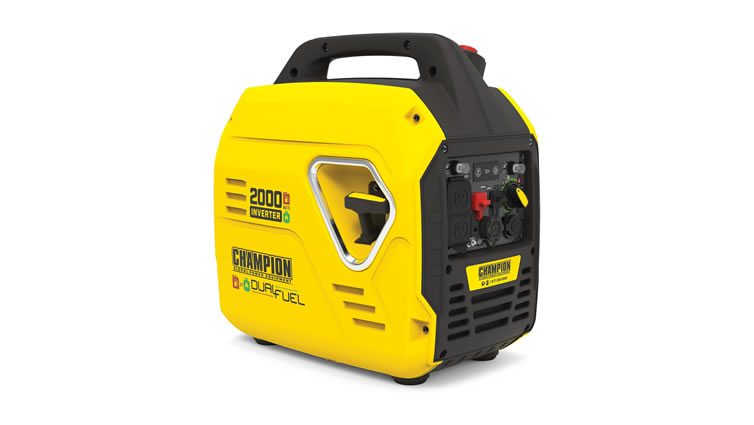
Store Your Generator Properly Between Uses
When your best inverter generator isn’t in use, proper storage can help preserve its efficiency and functionality. If you’re storing the generator for a long period, drain the fuel tank to prevent fuel from degrading. It’s also a good idea to store the generator in a dry, cool place, away from moisture and extreme temperatures, which could damage the internal components.
Storing your generator properly means it’ll be ready to go when you need it next, without any issues. If you plan on storing it outside, be sure to cover it with a weather-resistant cover to protect it from the elements.
Maximizing the efficiency of your **best inverter generator** isn’t complicated, but it does require some attention to detail and regular maintenance. By choosing the right generator size, using eco-mode, performing routine maintenance, avoiding overloading, and following a few simple storage tips, you can keep your generator running at peak performance for longer. These small efforts will ensure that your generator works efficiently, saving you time, money, and fuel while providing reliable power whenever you need it.
FAQ: Best Inverter Generator
1. What is the best inverter generator for home use?
The best inverter generator for home use depends on your power needs, but popular options include the Honda EU2200i, Yamaha EF2000iSv2, and WEN 56200i. These models are quiet, fuel-efficient, and provide reliable power for essential appliances.
2. How do I choose the best inverter generator?
To choose the best inverter generator, consider factors like wattage capacity, fuel efficiency, noise level, and brand reliability. For smaller appliances, a 2000-watt generator should suffice, while larger homes may need 4000 watts or more.
3. What is the most fuel-efficient inverter generator?
The Honda EU2200i is widely regarded as one of the most fuel-efficient inverter generators, with up to 8 hours of runtime at a 25% load. It delivers reliable power with excellent fuel economy, making it ideal for long-term use.
4. What size inverter generator do I need?
The size of inverter generator you need depends on the appliances you want to power. For instance:
2000 watts: Best for small appliances like fans, TVs, and lights.
3000-4000 watts: Suitable for larger appliances like refrigerators or air conditioners.
5000 watts and above: Ideal for powering multiple devices or larger homes.
5. Is a 2000-watt inverter generator enough for a house?
A 2000-watt inverter generator is enough for powering small appliances like lights, fans, and a small refrigerator. However, if you need to run larger devices like air conditioners or multiple appliances, consider a higher wattage generator.
6. Are inverter generators quieter than regular generators?
Yes, inverter generators are significantly quieter than regular generators. They are designed with advanced mufflers and are optimized to run at lower noise levels, typically ranging from 50 to 60 decibels, making them ideal for camping or residential use.
7. Can I use an inverter generator to run a refrigerator?
Yes, an inverter generator can safely run a refrigerator, as long as it has the necessary wattage capacity. A 2000-watt generator will run smaller refrigerators, while larger units may require a 3000-watt or higher model.
8. What is the lifespan of an inverter generator?
The average lifespan of an inverter generator is around 2,000 to 3,000 hours of use, depending on maintenance and usage. Proper care, including regular oil changes and cleaning, can extend the life of the generator significantly.
9. How long can an inverter generator run continuously?
The runtime of an inverter generator depends on the load and fuel capacity. Most models can run between 6 to 12 hours on a full tank of gas when running at 25% load. Larger models with larger fuel tanks can last even longer.
10. What makes an inverter generator the best choice for camping?
Inverter generators are the best choice for camping because they are portable, lightweight, and quieter than traditional generators. They produce clean energy, which is essential for sensitive electronics like laptops, phones, and cameras.
11. Can an inverter generator power sensitive electronics?
Yes, inverter generators produce clean, stable power, making them perfect for sensitive electronics such as laptops, smartphones, and gaming consoles, which require a steady voltage without fluctuations.
12. How much does a good inverter generator cost?
A good inverter generator typically ranges from $500 to $2,500, depending on wattage and features. For example, a 2000-watt generator might cost around $500, while higher-capacity models (like a 5000-watt generator) can cost $2,000 or more.
13. Are inverter generators more expensive than regular generators?
Yes, inverter generators are generally more expensive than traditional generators due to their advanced technology, quieter operation, and cleaner power output. However, they offer greater fuel efficiency and are more portable, which justifies the higher price.
14. What is the best inverter generator for the money?
For the best value, consider the WEN 56200i or the Yamaha EF2000iSv2. Both offer excellent performance, reliability, and fuel efficiency at an affordable price, making them great options for most users.
15. Can you connect two inverter generators together?
Yes, you can parallel two inverter generators together using a parallel kit, which doubles your power output without compromising the advantages of inverter technology. This is ideal for powering larger appliances or more devices simultaneously.
16. How long does it take to recharge an inverter generator?
The time it takes to recharge an inverter generator depends on the fuel tank size and the generator’s load. Most models take 4 to 8 hours to fully refuel, but runtime can vary based on the generator’s load during operation.
17. What are the top inverter generator brands?
Top inverter generator brands include Honda, Yamaha, WEN, Westinghouse, and Champion. These brands are known for their reliability, fuel efficiency, and long-lasting performance in various environments.
18. Can an inverter generator be used in cold weather?
Yes, most inverter generators can be used in cold weather, but you may need to take precautions like using winter-grade oil or ensuring the generator is sheltered from the wind and freezing temperatures to maintain optimal performance.
19. What’s the difference between an inverter generator and a regular generator?
Inverter generators are more efficient, produce cleaner power, and operate quieter than regular generators. Regular generators typically produce raw power, which can damage sensitive electronics, while inverter generators provide stable voltage ideal for these devices.
20. What is the best inverter generator for RV use?
The Honda EU3000iS is considered one of the best inverter generators for RV use due to its quiet operation, fuel efficiency, and ability to power larger RV appliances like air conditioners, microwave ovens, and refrigerators.
Recent Posts
